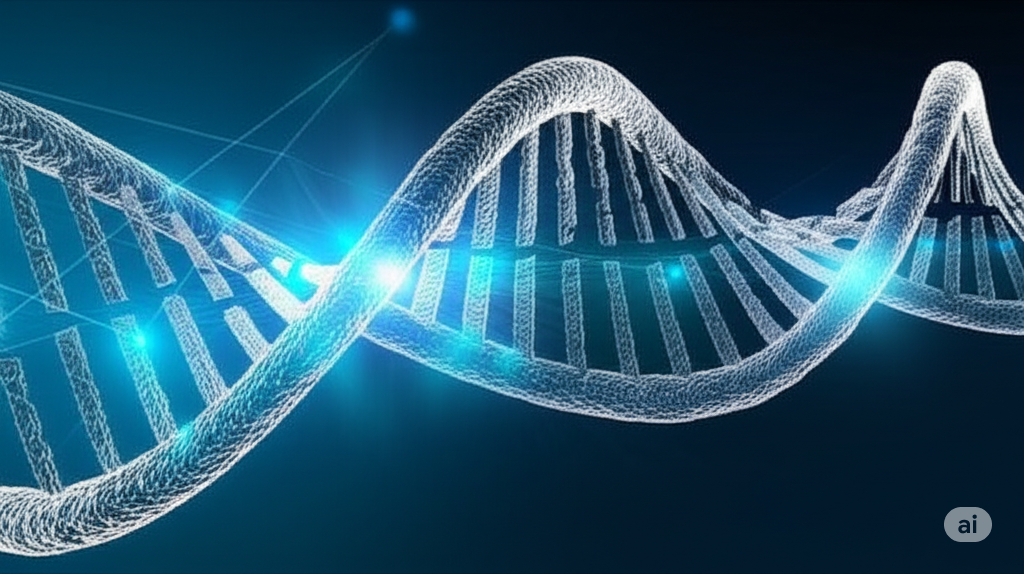The Role of AI in Genomic Medicine: Unlocking Personalized Healthcare
The human genome, a vast and intricate blueprint of life, holds the key to understanding disease susceptibility, predicting treatment response, and ultimately, paving the way for personalized healthcare. However, deciphering this complex code and translating it into actionable clinical insights presents a monumental challenge. This is where Artificial Intelligence (AI) steps in, offering unprecedented capabilities in analyzing the massive datasets generated by genomic research and clinical practice.
Decoding the Language of Life: AI in DNA Sequencing Analysis
The advent of high-throughput DNA sequencing technologies has flooded the scientific community with an overwhelming amount of genetic data. Manually sifting through billions of data points to identify clinically relevant variations is a time-consuming and error-prone process. AI algorithms, particularly machine learning models, excel at pattern recognition and can rapidly analyze sequencing data to pinpoint genetic mutations associated with disease. These algorithms can be trained on large datasets of known genetic variants and their clinical significance, enabling them to accurately and efficiently identify disease-causing mutations, predict disease risk, and even classify subtypes of diseases like cancer based on their genomic profiles.

Precision Editing: AI and CRISPR Gene Editing Predictions
The revolutionary CRISPR-Cas9 gene editing technology holds immense promise for treating genetic diseases by precisely modifying the DNA sequence. However, predicting the on-target efficiency and potential off-target effects of CRISPR edits is crucial for ensuring safety and efficacy. AI algorithms are being developed to analyze DNA sequences and predict the likelihood of successful gene editing at the desired location while minimizing unintended alterations elsewhere in the genome. This predictive power of AI can significantly accelerate the development and application of gene therapies, making them more precise and reliable.
Navigating the Ocean of Data: Challenges in Big Genomic Data Processing
The sheer volume of genomic data presents significant computational and analytical challenges. Storing, processing, and interpreting these massive datasets require sophisticated infrastructure and advanced analytical tools. AI provides solutions by enabling scalable data analysis through cloud computing platforms and developing efficient algorithms for handling the complexity of genomic information. Furthermore, AI can help integrate genomic data with other types of patient data, such as clinical history, imaging results, and lifestyle factors, to create a more holistic view of an individual’s health and disease. This integration is essential for truly personalized healthcare, where treatment decisions are tailored to the unique genetic and clinical profile of each patient.
Personalized Medicine in Action: Applications Across Healthcare
The impact of AI in genomic medicine is already being felt across various medical specialties:
- Oncology: AI algorithms can analyze tumor genomes to identify specific mutations that drive cancer growth, helping oncologists select the most effective targeted therapies. AI can also predict prognosis and monitor treatment response based on genomic changes.
- Rare Diseases: Diagnosing rare genetic diseases can be a long and arduous journey. AI can accelerate the diagnostic process by analyzing a patient’s genome and comparing it to databases of known rare disease-causing genes, potentially providing answers for patients and their families much faster.
- Reproductive Health: AI can play a role in preimplantation genetic diagnosis (PGD) by analyzing the genomes of embryos to identify those free from inherited genetic disorders, improving the success rates of IVF and reducing the risk of transmitting genetic conditions.
The Path Forward
While the integration of AI into genomic medicine holds tremendous potential, challenges remain. Ensuring data privacy and security, developing robust and unbiased AI algorithms, and bridging the gap between genomic research and clinical implementation are crucial steps for realizing the full benefits of this powerful synergy. As AI continues to evolve, its role in deciphering the complexities of the human genome will only grow, ushering in an era of truly personalized healthcare where treatments are precisely tailored to the individual’s genetic makeup, leading to improved outcomes and a healthier future for all.

Leave a Reply